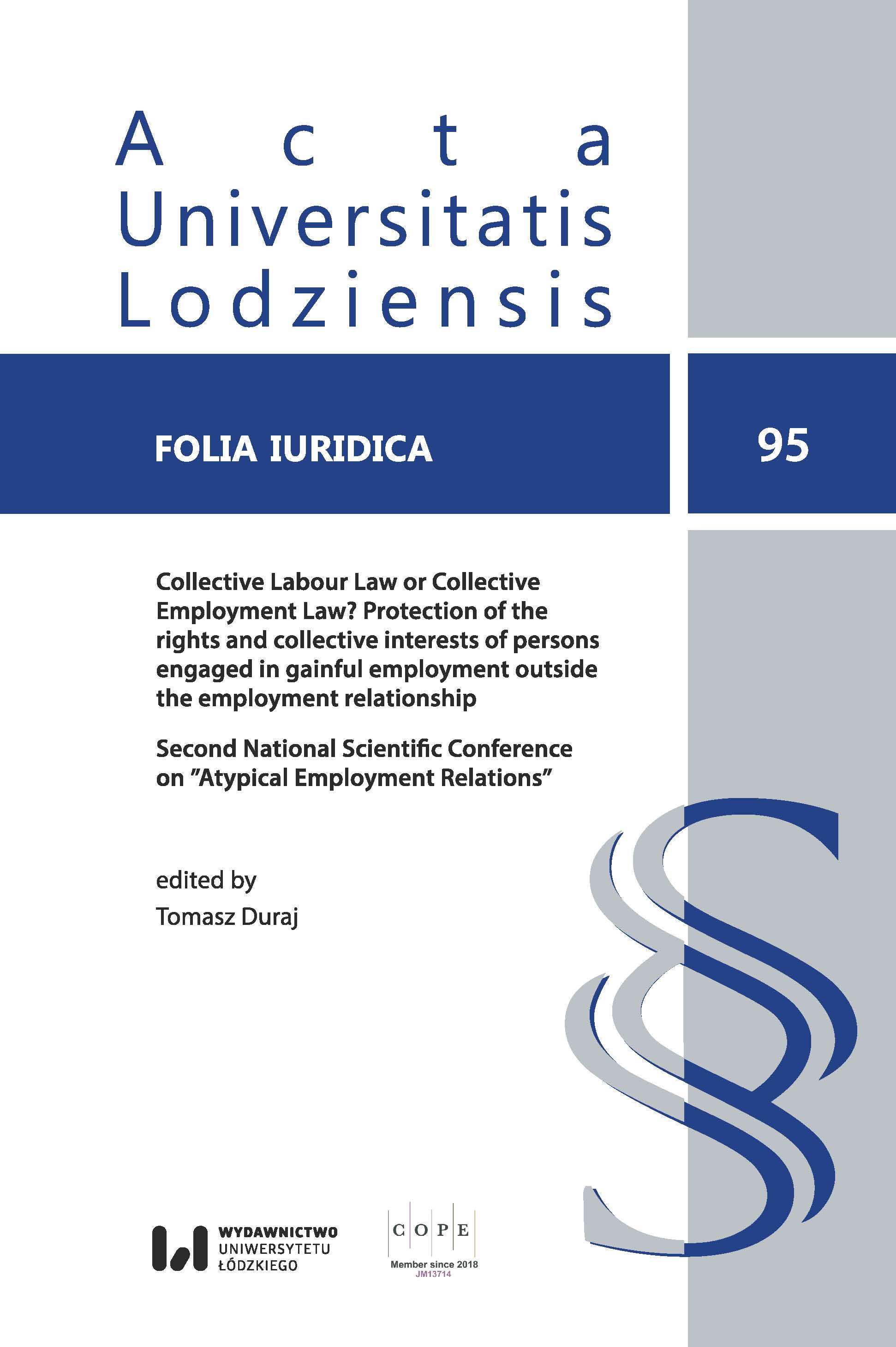Collective Labour Rights of Self-Employed Persons on the Example of Spain: is There any Lesson for Poland?
Collective Labour Rights of Self-Employed Persons on the Example of Spain: is There any Lesson for Poland?
Author(s): Aneta TycSubject(s): Labor relations, Labour and Social Security Law
Published by: Wydawnictwo Uniwersytetu Łódzkiego
Keywords: self-employment; collective labour rights; Spanish law; “classic” self-employed persons;economically dependent self-employed workers
Summary/Abstract: This paper aims to analyse collective labour rights of both “classic” selfemployed persons and economically dependent self-employed workers under the Spanish Statute of Self-Employed Workers (Ley 20/2007 del Estatuto del Trabajo Autónomo). The author applies comparative analysis and critical reasoning with a view to answering the questions: is the scope of protection wide enough, and can Poland draw a lesson from it? The paper presents evidence that demonstrates that among all self-employed workers, only economically dependent self-employed workers are granted the right to bargain collectively. However, findings suggest that in practice, collective bargaining is stymied mainly because it takes place only at the enterprise level, and because the number of economically dependent self-employed workers is minimal. The paper concludes that collective labour rights under the Statute of Self-Employed Workers could be better protected (especially as regards “classic” self-employed persons). On the other hand, however, in Poland, the lack of any criteria that would enable a diversification of the scope of collective rights granted to self-employed persons is subject to criticism. It appears that in some areas the legislator should differentiate the scope of protection. The criterion of economic dependence, which exists in Spanish law, could be successfully used for this purpose.
Journal: Acta Universitatis Lodziensis. Folia Iuridica
- Issue Year: 2021
- Issue No: 95
- Page Range: 135-142
- Page Count: 8
- Language: English

